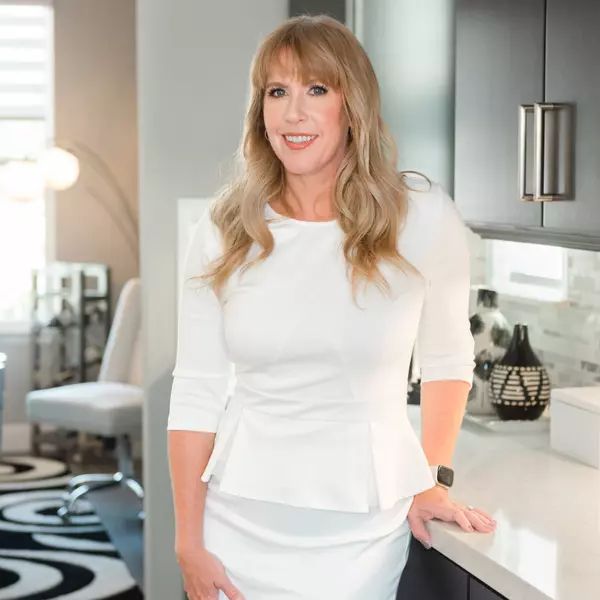How to Build Equity in a Home Before Selling

When you buy a home, one of the biggest financial benefits comes from the opportunity to build equity over time. Building equity in a home means gradually increasing the portion of your property that you truly own. You can do this in two main ways: either by paying down your mortgage if you have one, or by increasing your home’s market value.
If you’re planning to sell your home in the near or distant future, knowing how to build equity in a home can make a significant difference in your profits. So whether you’re planning to sell a house in Austin, TX, or your family home in Charlotte, NC, this Redfin real estate article will break down what home equity is, why it matters, and how to maximize it before selling.
What is home equity?
Home equity is the difference between your home’s market value and what you still owe on your mortgage. For example, if your home’s market value is $400,000 and you still owe $250,000, then you have $150,000 in equity. That equity represents real ownership, money you could potentially access through a home equity loan or line of credit, or cash out when you sell.
How does home equity work?
Each monthly mortgage payment you make reduces your loan balance. At the same time, if your home appreciates due to market growth or renovations, your equity grows even faster. Over time, this creates a financial cushion that can be tapped for future investments, emergencies, or a profitable sale.
Why is building home equity important?
For most homeowners, building equity isn’t just a nice bonus; it’s a key part of long-term financial stability. Here’s why:
- Net profit when selling: Equity determines how much money you walk away with. Once your remaining mortgage and other housing debts are paid off, the leftover balance is your net profit.
- Covering selling costs: Selling a home isn’t free. Between real estate commissions, closing costs, and repairs, fees can add up to 6–10% of the sale price. Strong equity ensures you won’t need to pay these out-of-pocket.
- Larger down payment on your next home: The more equity you cash out, the more you can reinvest into a future property.
- Financial flexibility: Equity can also cover moving expenses, pay off high-interest debts, or be reinvested in the market.
How to build home equity before you sell
So, what does building equity mean in practical terms? Essentially, it’s about reducing what you owe while maximizing your property’s value. Let’s explore the most effective strategies.
Increase your equity through accelerated mortgage payments
- Make a larger down payment: Your down payment is your starting equity. The more you put down upfront, the less you owe and the quicker your ownership stake grows.
- Make extra payments on the principal: Paying above the minimum each month accelerates equity growth. You can do this by:
- Bi-weekly payments – Divide your monthly payment in half and pay every two weeks. This adds up to one extra payment per year.
- Paying a little extra monthly – Rounding up your payment or adding a fixed amount chips away at the principal faster.
- Applying windfalls – Use tax refunds, bonuses, or inheritance to make lump-sum principal payments.
- Refinance to a shorter-term loan: Switching from a 30-year to a 15-year mortgage increases monthly payments but dramatically speeds up equity growth.
- Refinance to a lower interest rate: With a reduced rate, you can keep making the same payment amount as before, sending more of your money directly to the principal.
- Eliminate private mortgage insurance (PMI): If you purchased your home with less than 20% down, you likely pay PMI. Once your loan-to-value ratio falls below 80%, request its removal. Dropping PMI saves money each month, which can be redirected to your principal.
Increase your equity through home value appreciation
Beyond mortgage payments, another major driver of equity is appreciation- when your home’s value rises.
- Invest in smart home improvements: Renovations that add value can increase equity. Some of the best projects include:
- Kitchen or bathroom remodels
- Adding energy-efficient upgrades (solar panels, new windows, insulation)
- Improving curb appeal through landscaping or siding replacement
- Outdoor living features such as a deck or fire pit
- Maintain your property: Routine maintenance keeps your home in top condition. Small repairs today prevent costly deterioration tomorrow.
- Wait for market appreciation: Housing markets tend to rise over time. While you can’t control the economy, owning in a growing area typically leads to higher equity.
Bonus tip: Consider a shared equity agreement
Another less common option is a shared equity agreement. Here, an investor provides cash upfront in exchange for a percentage of your future appreciation. This can help reduce your mortgage balance quickly, lower your monthly payments, or give you cash for renovations that may boost your property’s value. However, the tradeoff is that you’ll share a portion of your home’s future profits with the investor when you sell, which can reduce your overall return compared to traditional equity growth.
What happens with low or no equity?
Selling a home with little to no equity can put homeowners in a difficult financial position. If your equity is not enough to cover the remaining mortgage balance and the costs of selling, you may end up breaking even or, in some cases, losing money on the transaction. In more challenging situations, sellers are required to bring cash to the closing table to make up the difference, rather than walking away with profits.
Even more concerning is an underwater mortgage, which happens when your outstanding loan balance exceeds the current market value of your home. This scenario makes it nearly impossible to profit from a sale and may lead to more drastic measures such as a short sale or, in the worst case, foreclosure. These risks highlight why it’s essential to understand how to build and increase home equity early in your homeownership journey.
Financial flexibility from strong equity
When you’ve successfully built equity, selling your home opens up opportunities:
- Use profits as a down payment on your next home: A larger down payment on your next property can lower your monthly mortgage payments and potentially help you secure a better interest rate. This not only saves you money in the long term but also strengthens your financial position as a buyer.
- Pay off high-interest credit cards or student loans: Using home sale proceeds to eliminate costly debt can free up more of your monthly income. This can improve your credit score and provide long-term financial relief.
- Cover moving costs stress-free: Relocating often comes with expenses for movers, packing supplies, or temporary housing. Having equity ensures you won’t have to rely on credit or deplete your savings to cover these costs.
- Reinvest funds into stocks, retirement accounts, or other ventures: By putting your profits to work, you can continue building wealth even after the sale. Whether you choose safer investments or higher-risk opportunities, equity provides a financial springboard for future growth.
Having strong equity means more freedom and fewer financial risks when selling, allowing you to make confident choices about your next chapter.
FAQs about building home equity
How long does it take to build equity in a home?
It depends on your down payment, mortgage terms, and market conditions. On average, many homeowners see significant equity growth within 5-7 years.
What is a good equity to have in a house?
Most experts recommend having at least 20% equity, which also helps eliminate PMI.
What disqualifies you from getting a home equity loan?
Poor credit, low income, or insufficient equity (typically less than 15–20%) may prevent approval.
What income is needed for a home equity loan?
It varies, but lenders generally want your debt-to-income ratio below 43%. This ensures you can manage both your mortgage and the new loan.
The post How to Build Equity in a Home Before Selling appeared first on Redfin | Real Estate Tips for Home Buying, Selling & More.
Categories
Recent Posts












